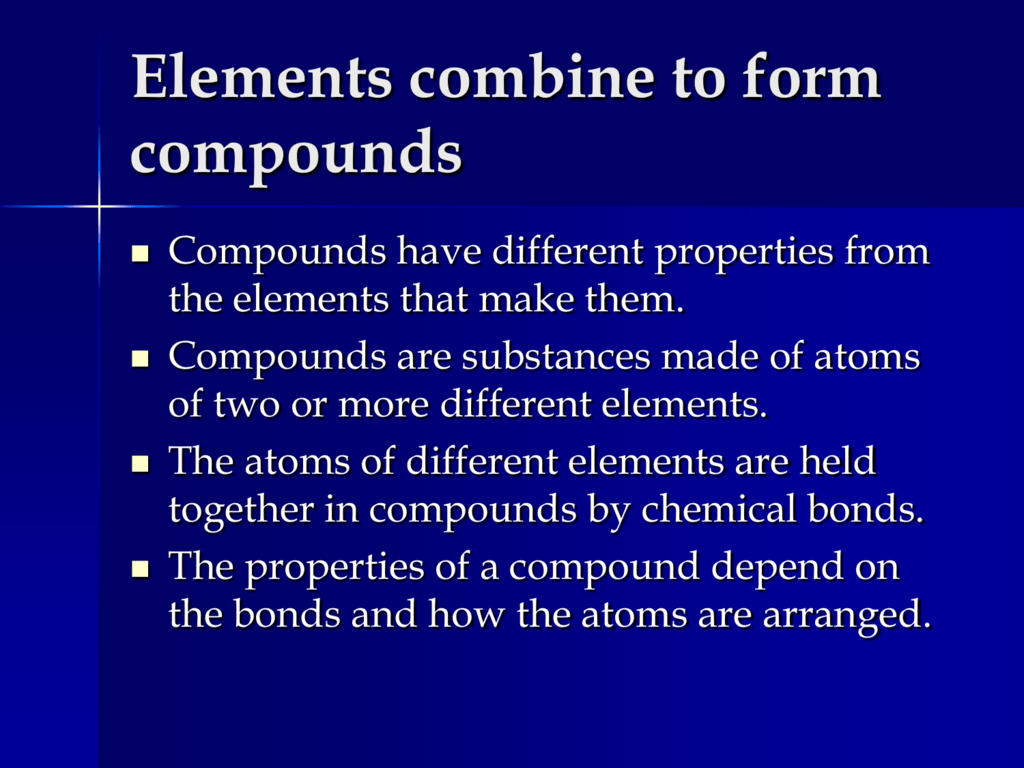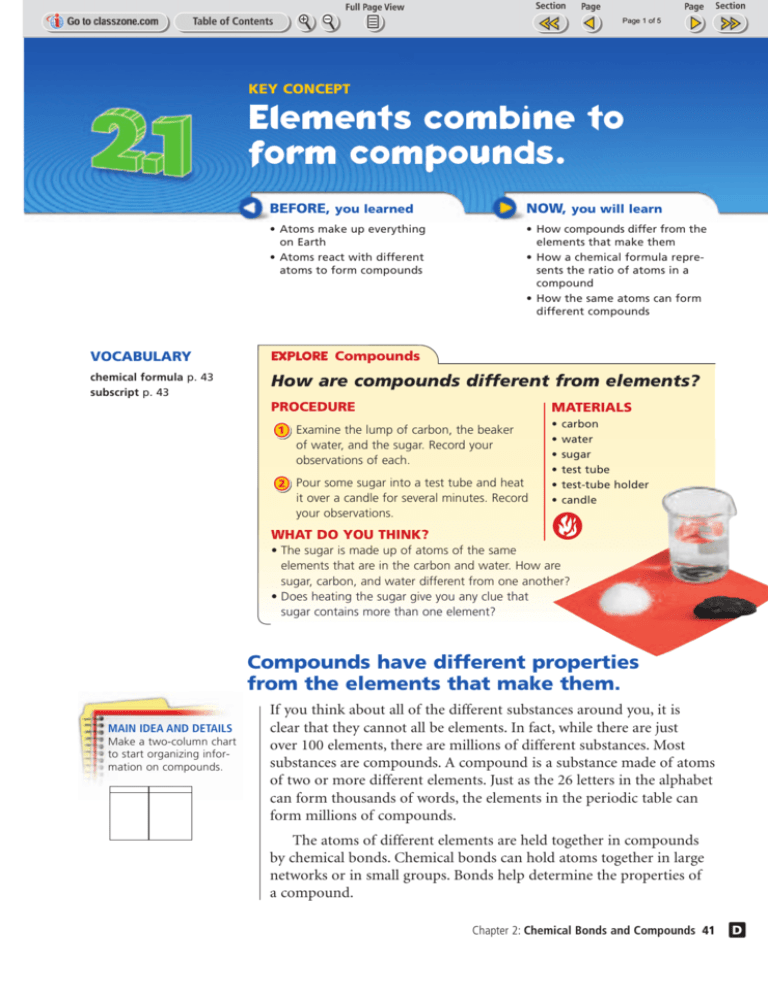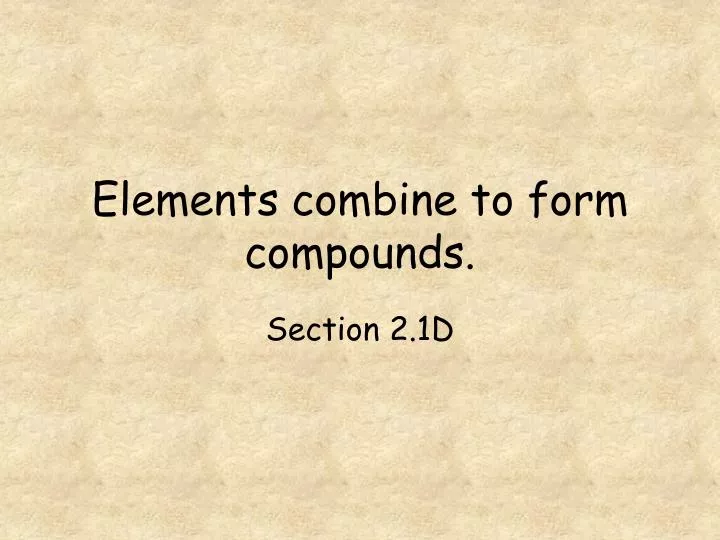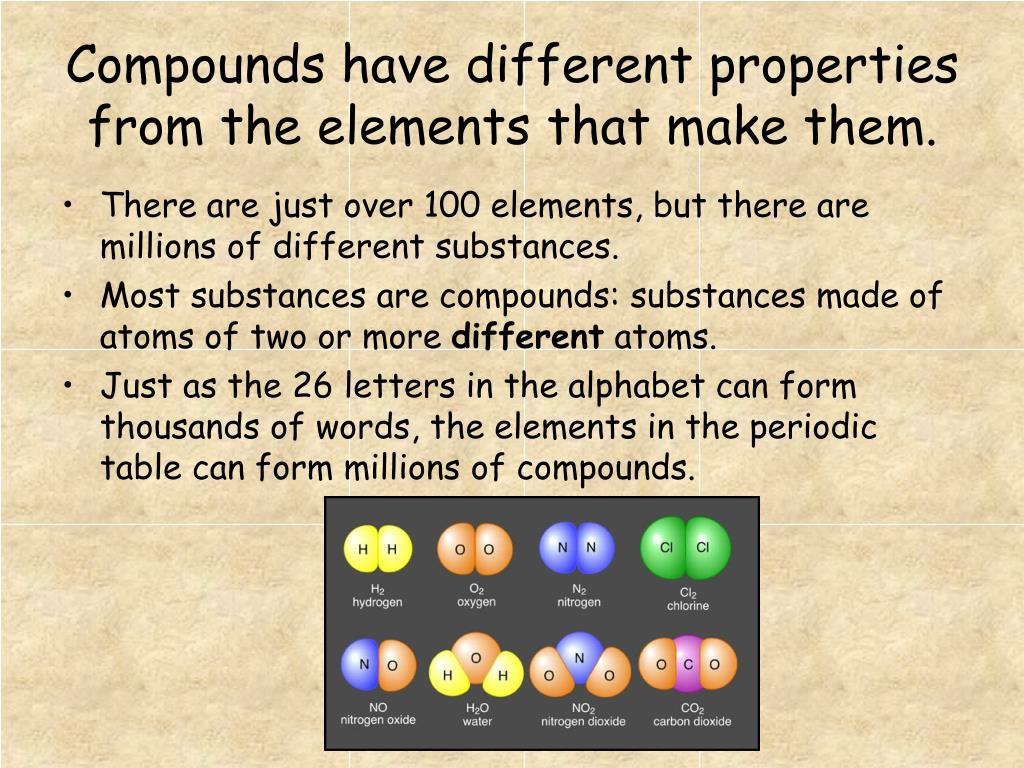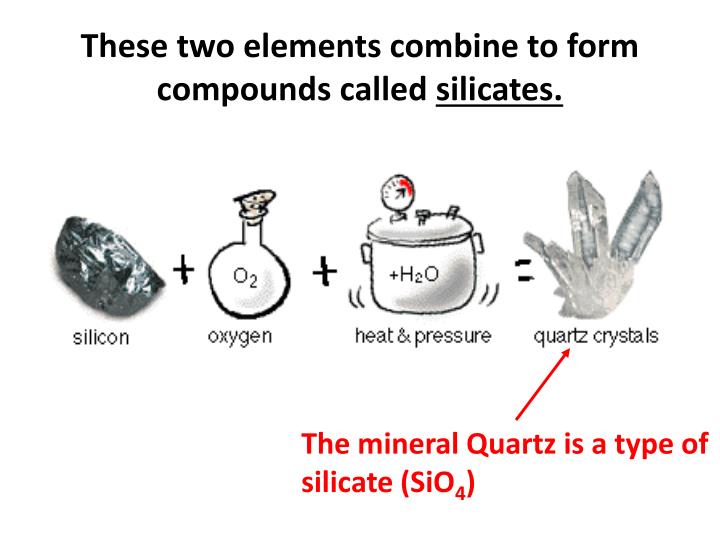When Elements Combine To Form Compounds:
When Elements Combine To Form Compounds: - Web term 1 / 14 chemical bonds click the card to flip 👆 definition 1 / 14 what compounds form through, which are links between two or more atoms that hold the atoms together click. Their properties change completely c). In comparison, elements retain some (or many) of their property when they are mixed to. Metals often react with nonmetals to form ionic compounds. For example, hydrogen and oxygen atoms combine in a ratio of 2:1 to form the. Web to understand how elements are combined to form compounds, it is necessary to understand the structure of atoms. Web combination reactions can also be called synthesis reactions. Web when two or more elements combine to form a compound, their masses in that compound are in a fixed and definite ratio. Web chemical bonds link elements together to form more complex molecules called compounds. Web when elements combine to form compounds:
Web law of multiple proportions, statement that when two elements combine with each other to form more than one compound, the weights of one element that combine with a fixed. Web to understand how elements are combined to form compounds, it is necessary to understand the structure of atoms. The fourth part of the theory states that a chemical reaction is a rearrangement of atoms. Methane is a pure substance because it always has the same. Atoms consist mainly of electrically charged particles. A compound consists of two or more types of elements held together by. Web almost all the elements combine to form compounds, although the reactivity may vary from element to element. Web the third part says compounds are combinations of two or more different types of atoms. The general form of a combination reaction is: Atoms cannot be created or destroyed.
Web combination reactions can also be called synthesis reactions. The general form of a combination reaction is: Metals often react with nonmetals to form ionic compounds. Methane is a pure substance because it always has the same. These data help justify an atomic view. Web atoms of the same element are similar in shape and mass, but differ from the atoms of other elements. Web term 1 / 14 chemical bonds click the card to flip 👆 definition 1 / 14 what compounds form through, which are links between two or more atoms that hold the atoms together click. Web when two or more elements combine to form a compound, their masses in that compound are in a fixed and definite ratio. Web to understand how elements are combined to form compounds, it is necessary to understand the structure of atoms. Web the third part says compounds are combinations of two or more different types of atoms.
Elements combine to form compounds
The other type of synthesis reaction happens. Their properties change completely c). A compound consists of two or more types of elements held together by. Web almost all the elements combine to form compounds, although the reactivity may vary from element to element. \ [\ce {a} + \ce {b} \rightarrow \ce {ab}\nonumber \].
Elements combine to form compounds.
Web atoms of different elements may combine with each other in a fixed, simple, whole number ratios to form compound atoms. Web when two or more elements combine to form a compound, their masses in that compound are in a fixed and definite ratio. These data help justify an atomic view. The fourth part of the theory states that a.
PPT Elements combine to form compounds. PowerPoint Presentation, free
A compound consists of two or more types of elements held together by. These data help justify an atomic view. For example, hydrogen and oxygen atoms combine in a ratio of 2:1 to form the. In comparison, elements retain some (or many) of their property when they are mixed to. One of the simplest is called methane, in which there.
How to Combine Elements to Form Compounds Sciencing
Atoms consist mainly of electrically charged particles. These data help justify an atomic view. For example, hydrogen and oxygen atoms combine in a ratio of 2:1 to form the. \ [\ce {a} + \ce {b} \rightarrow \ce {ab}\nonumber \]. The other type of synthesis reaction happens.
How to Combine Elements to Form Compounds Sciencing
Web when two or more elements combine to form a compound, their masses in that compound are in a fixed and definite ratio. For example, hydrogen and oxygen atoms combine in a ratio of 2:1 to form the. Their properties change completely c). The general form of a combination reaction is: Web yes, when elements combine to form compounds, their.
PPT Elements combine to form compounds. PowerPoint Presentation, free
Methane is a pure substance because it always has the same. These data help justify an atomic view. Web atoms of different elements may combine with each other in a fixed, simple, whole number ratios to form compound atoms. Metals often react with nonmetals to form ionic compounds. Web to understand how elements are combined to form compounds, it is.
PPT Minerals PowerPoint Presentation ID2047598
Web yes, when elements combine to form compounds, their individual properties are lost. The other type of synthesis reaction happens. In comparison, elements retain some (or many) of their property when they are mixed to. Methane is a pure substance because it always has the same. Web atoms of the same element are similar in shape and mass, but differ.
Elements combine to form compounds YouTube
Web atoms of the same element are similar in shape and mass, but differ from the atoms of other elements. Atoms cannot be created or destroyed. In comparison, elements retain some (or many) of their property when they are mixed to. The other type of synthesis reaction happens. The fourth part of the theory states that a chemical reaction is.
Elements & compounds 1 Ionic Bonding.avi YouTube
In comparison, elements retain some (or many) of their property when they are mixed to. For example, hydrogen and oxygen atoms combine in a ratio of 2:1 to form the. These combinations take place because almost all. Methane is a pure substance because it always has the same. Web atoms of the same element are similar in shape and mass,.
What Is a Compound in Chemistry? Definition and Examples
Web yes, when elements combine to form compounds, their individual properties are lost. The fourth part of the theory states that a chemical reaction is a rearrangement of atoms. Web to understand how elements are combined to form compounds, it is necessary to understand the structure of atoms. Web term 1 / 14 chemical bonds click the card to flip.
These Data Help Justify An Atomic View.
Web atoms of different elements may combine with each other in a fixed, simple, whole number ratios to form compound atoms. Web to understand how elements are combined to form compounds, it is necessary to understand the structure of atoms. Web almost all the elements combine to form compounds, although the reactivity may vary from element to element. In comparison, elements retain some (or many) of their property when they are mixed to.
Methane Is A Pure Substance Because It Always Has The Same.
Web when elements combine to form compounds: Web yes, when elements combine to form compounds, their individual properties are lost. Web term 1 / 14 chemical bonds click the card to flip 👆 definition 1 / 14 what compounds form through, which are links between two or more atoms that hold the atoms together click. Web law of multiple proportions, statement that when two elements combine with each other to form more than one compound, the weights of one element that combine with a fixed.
Atoms Consist Mainly Of Electrically Charged Particles.
These combinations take place because almost all. Atoms cannot be created or destroyed. \ [\ce {a} + \ce {b} \rightarrow \ce {ab}\nonumber \]. Their properties do not change b).
Web Combination Reactions Can Also Be Called Synthesis Reactions.
A compound consists of two or more types of elements held together by. Their properties change completely c). Web when two or more elements combine to form a compound, their masses in that compound are in a fixed and definite ratio. Web atoms of the same element are similar in shape and mass, but differ from the atoms of other elements.
